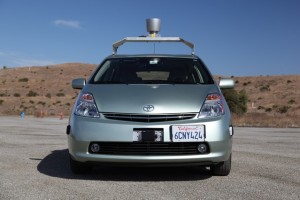 Earlier this week, we wrote about the impact that Uber could have on the future of transportation. That prompted Donald Grimes, a noted economist at the University of Michigan, to reach out to us. In this guest column, Grimes lays out the role that autonomous vehicles might play in the future of transportation.
Earlier this week, we wrote about the impact that Uber could have on the future of transportation. That prompted Donald Grimes, a noted economist at the University of Michigan, to reach out to us. In this guest column, Grimes lays out the role that autonomous vehicles might play in the future of transportation.
By Donald Grimes
What are the main problems with mass transit?
1) Cost. You have to pay the wages and benefits of the person driving the bus or the train or even the taxicab in addition to the operating and capital cost of the vehicle. When you are driving your own vehicle your labor as a driver is free.
2) Convenience. People have to get to the location to catch a bus or a train, and the mass transit will probably drop you off some distance from where you want to be.
So what is the big technology coming in motor vehicles? Driverless cars (what some call autonomous vehicles). Now, if you are using your own vehicle, who cares if the car can drive itself, other than on those long-trips when you want to take a nap.
But think about the potential for a driverless car as a mass transit vehicle.Envision those driverless vehicles rooming the city. Someone calls a central dispatcher, or sends an email or text message to a computer, which then identifies the nearest driverless vehicle and sends it to pick the passenger up.
As that vehicle is en route to its destination, it can pick up other passengers on the way. It drops the passenger off at their preferred destination, and goes on to pick someone else up.
To me, the basis of future mass transit is not buses or trains running on fixed routes, but more of a sophisticated taxi system without drivers, and where the vehicles use sophisticated software and communications systems to pick up and deliver multiple passengers on any particular trip.
What do you think of Grimes’ idea? Do driverless cars have mass transit potential?

